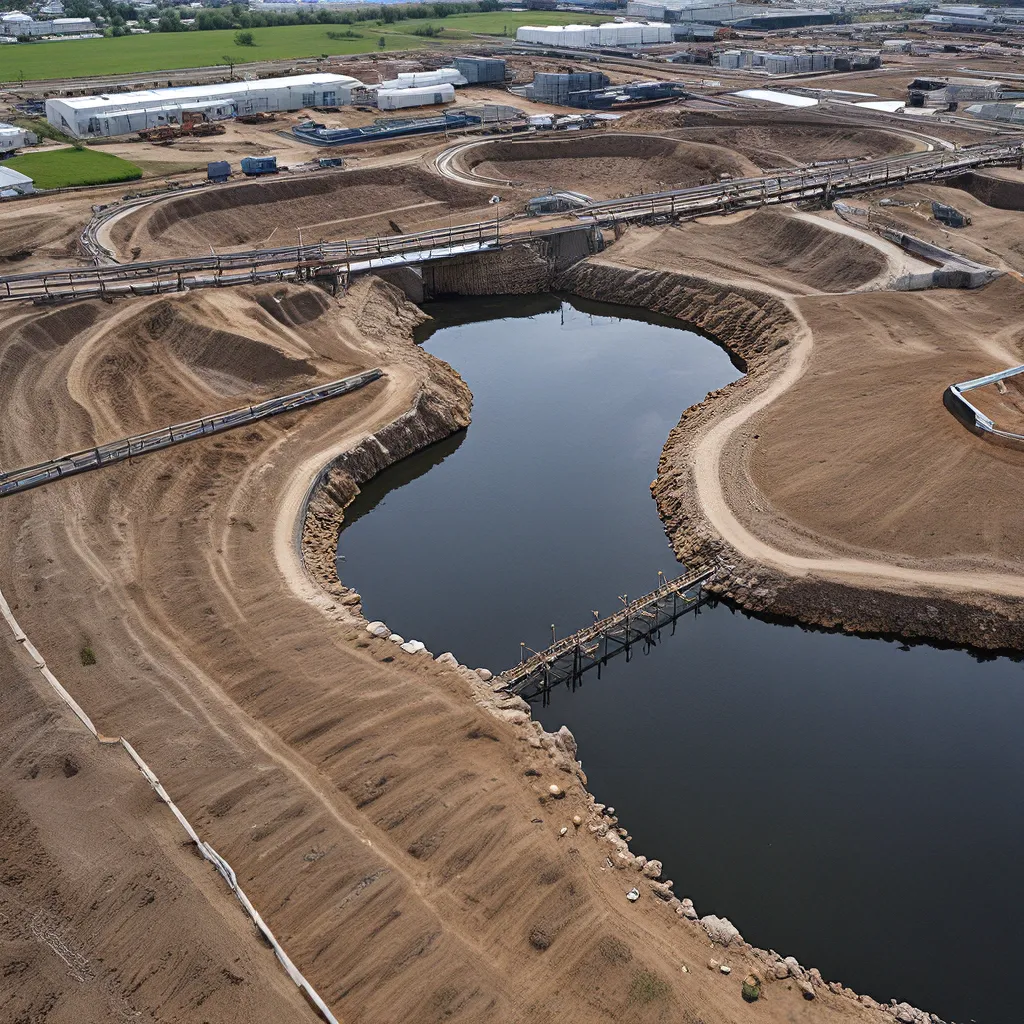
As an avid sustainability enthusiast, I’ve long been fascinated by the concept of the circular economy and its potential to revolutionize the way we think about waste. Recently, I delved deeper into the intersection of wastewater treatment and the circular economy, and I have to say, the insights I uncovered were nothing short of mind-blowing.
Rethinking Waste: The Circular Economy Approach
You see, the traditional linear economy that we’ve become so accustomed to – where we extract resources, manufacture products, and then discard them as waste – is simply unsustainable. It’s a model that’s contributing to the alarming depletion of our planet’s finite resources and the ever-growing piles of waste that are choking our landfills and polluting our environment.
However, the circular economy offers a radically different approach. Instead of viewing waste as the end of the line, it sees it as a valuable resource that can be continuously cycled back into the system. The goal is to eliminate waste and pollution, circulate products and materials at their highest value, and regenerate nature. It’s a systems-level solution that tackles some of the most pressing global challenges we face today, from climate change to biodiversity loss.
Wastewater Treatment: A Circular Opportunity
And this is where wastewater treatment comes into the picture. Traditionally, wastewater has been viewed as a nuisance – something to be disposed of as efficiently as possible. But in a circular economy, wastewater is a treasure trove of valuable resources just waiting to be unlocked.
Research has shown that wastewater contains a wealth of nutrients, energy, and even precious metals that can be recovered and repurposed. For example, the organic matter in wastewater can be converted into biogas, which can then be used to generate renewable energy. The nutrients, like nitrogen and phosphorus, can be extracted and used as fertilizers to support sustainable agriculture.
But the benefits don’t stop there. Wastewater treatment plants can also play a crucial role in the circular economy by producing clean water that can be reused for a variety of purposes, such as irrigation, industrial processes, or even groundwater recharge. This helps to reduce the demand for freshwater resources, which are becoming increasingly scarce in many parts of the world.
Driving Innovation in Wastewater Treatment
To fully realize the circular potential of wastewater treatment, we need to embrace innovative technologies and approaches. Researchers are exploring a range of advanced treatment methods, from membrane filtration to anaerobic digestion, that can extract and recover valuable resources from wastewater streams.
But it’s not just about the technology – it’s also about rethinking the entire wastewater management system. This means integrating resource recovery into the design and operation of treatment facilities, optimizing energy use, and fostering collaborative partnerships between wastewater treatment providers, industries, and communities.
At Alpha Wastewater, for example, we’ve been at the forefront of this circular transformation. By leveraging cutting-edge technologies and a deep understanding of the circular economy, we’re able to help our clients maximize the value they can extract from their wastewater streams. From nutrient recovery to energy generation, we’re constantly exploring new ways to turn waste into a valuable resource.
Embracing the Circular Future of Wastewater
As I’ve delved deeper into this topic, I’ve come to the realization that the circular economy isn’t just a pipe dream – it’s a tangible and necessary solution to the pressing environmental challenges we face. And wastewater treatment, with its vast potential for resource recovery, is a crucial piece of the puzzle.
Sure, the transition to a circular economy won’t be easy. There will be challenges to overcome, like regulatory hurdles, technological limitations, and cultural inertia. But I firmly believe that by embracing innovation, fostering collaboration, and shifting our mindsets, we can unlock the incredible potential of wastewater and create a more sustainable, resilient, and regenerative future for all.
So, what do you say? Are you ready to dive into the circular economy and help us transform the way we think about waste? I, for one, can’t wait to see what the future holds.